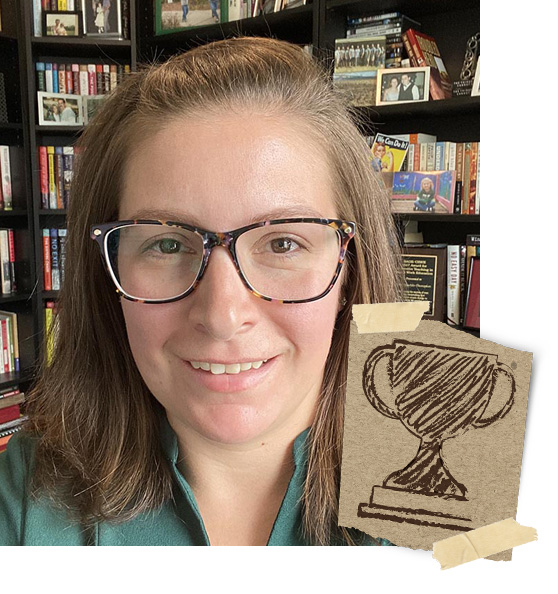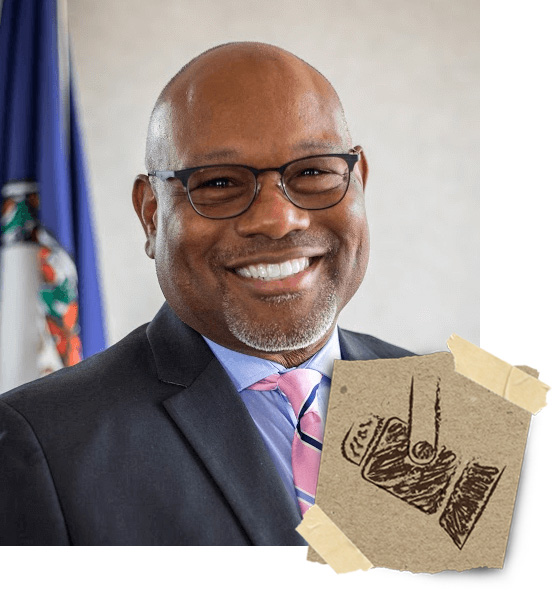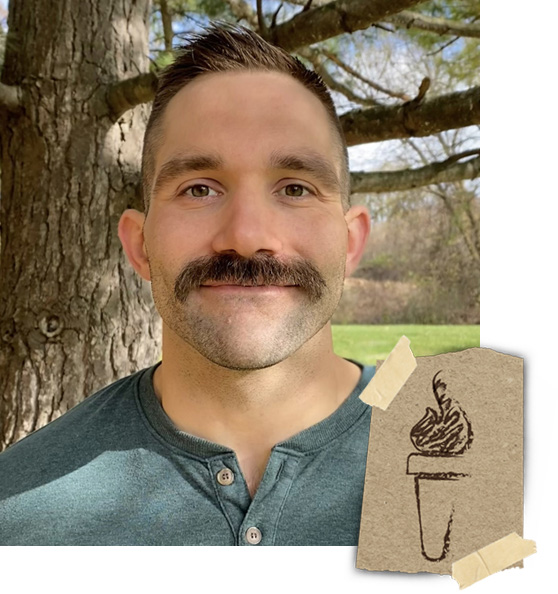Access Champion: Tina Thompson
November 7, 2025 - Emily Jodway
 This month, we celebrate Veterans Day and honor the sacrifices made by our United States servicemen and women. We also shine a light on the work being done by those affiliated with the College of Social Science to support our veterans. Tina Thompson is an instructor in the School of Social Work and Coordinator of the Combat Veterans Certificate (CVC), designed for civilians, service members, and veterans who have a passion to help those who have been exposed to the trauma of war or military conflict through their service in the U.S. Armed Forces.
This month, we celebrate Veterans Day and honor the sacrifices made by our United States servicemen and women. We also shine a light on the work being done by those affiliated with the College of Social Science to support our veterans. Tina Thompson is an instructor in the School of Social Work and Coordinator of the Combat Veterans Certificate (CVC), designed for civilians, service members, and veterans who have a passion to help those who have been exposed to the trauma of war or military conflict through their service in the U.S. Armed Forces.
Thompson attended undergrad at Saginaw Valley State and earned her Masters of Social Work at Michigan State, helping with marketing and recruitment for the Statewide Blended MSW program as a student employee. Shortly after graduating in 2007, she transitioned into the role of Assistant Coordinator for the Statewide Blended program, eventually becoming lead Coordinator. In 2020, she transitioned to a full-time instructor for the School of Social Work.
Thompson’s relationship to the veteran population is a deeply personal one. She first began dating her now husband, Kevin, in March of 2006, the same month he returned from his deployment to Iraq with the United States Marine Corps. Thompson was a student in the MSW program. Supporting her husband throughout his experience of transitioning back into civilian life eventually led to the conceptualization of the Combat Veteran Certificate. She saw gaps in the current curriculum for social work and ways that students could be more prepared to work with veterans upon graduation.
“Even though the Department of Veterans Affairs is one of the number one employers of social workers, many programs are not adequately preparing students to work with this population,” she said. “Walking alongside my husband, witnessing his struggles to get the care that he needed … there were a lot of barriers in his way that most civilians don’t understand because we never learn, not even as social workers.”
In 2016, Thompson and her colleague Glenn Stutzky first discussed the idea of a program that expanded social work education surrounding veterans. They presented a proposal to the then-Director of the School of Social Work, Dr. John Mooradian, whose own personal connections to the veteran population inspired him to eagerly embrace the idea. The first course in the program, Embracing the Stories of War, was offered that fall, and was centered around recorded testimonials from combat veterans, including Thompson’s husband.
Thompson and Stutzky’s original idea has since expanded into the full certificate that it is today. Students learn about the differences between treatment and healing, as well as how to address the veteran as a whole and the impact of cumulative trauma.
“We’re talking about holistic healing, we’re talking about PTSD, we’re talking about pre-military trauma that may have happened before they even joined the military, which can play a significant role in the many mental health challenges they then have to address when they come out of military service,” Thompson explained.
It’s important, Thompson explains, to acknowledge the different forms of injury that can be induced by trauma- Adverse Childhood Experiences (ACEs), post-traumatic stress, moral injury, exposure to combat- and the ways in which these injuries can increase the risk of depression, substance abuse and suicidality. Current treatment practices may address one or some of these issues, but rarely take into account how they may co-occur. “We’re digging into all of these different injuries that can happen, the ways in which they can manifest, and how we as helpers can think outside the box,” she said.
Students in the program learn about different therapeutic approaches such as meditation, equine therapy, service dogs, yoga, and other ways that healing can be individually tailored to each veteran, rather than a ‘one size fits all’ approach. At its core, Thompson explains, the CVC is a suicide prevention program. Her hope is that implementing these unique healing approaches and equipping students with knowledge that they can carry on into their futures in social work will aid in lowering the number of veteran suicides.
Another significant issue that Thompson hopes to address is the mental health stigma among veterans. It’s important, she says, for social workers to understand what a big step it is for a service member or veteran to actually seek out help. “When they do come to us for help, we need to approach our work with them from a place of authenticity, knowing that as a civilian, we’ll never be experts,” she said. “However, we’ve taken these courses and have a deeper appreciation and understanding of the things [veterans] have gone through, and can help shoulder some of those difficult traumas.”
Thompson is especially proud of the ways in which students, especially those who have personal connections to the veteran population, have been able to grow their relationships with the veterans in their lives thanks to the program. “They’re having conversations that were never on the table before, because the veteran is seeing their commitment and genuine interest in learning more about their experiences,” she said. She hopes that this can also aid in ending some of the multigenerational impact that military culture can leave on veterans and their families, as both Thompson and her husband have experienced this firsthand through older generations in their families.
Each year on Veterans Day, Thompson encourages the phrase, “Thank you for your service,” to be the start of a conversation, but not the end. One simple way we can support veterans is by showing genuine interest and wanting to learn more from their experiences, and not only focusing on the difficulties they may have faced.
“Most veterans report that if they could do it all over again, they would, because a lot of good can also come out of their military experiences,” she said. “And those are things that they would be very happy to share if civilians only asked.”
Honorees’ views are their own and do not necessarily reflect those of the College of Social Science.
Read more:

Access Spotlight
Alumni
Mike Alston
Mike Alston is an alumnus of the MSU School of Criminal Justice and a retired Federal Law Enforcement Officer with experience in the Drug Enforcement Agency and United States Department of Agriculture, culminating in over 35 years of federal service.

Access Torch
Student
Steven Willis
Steven Willis is a veteran of the US Army and former psychology student in the College of Social Science whose experiences with transitioning into post-military life have inspired him to help others in their own journeys.

Access Matters
We strive to cultivate an inclusive and welcoming college environment that celebrates a diversity of people, ideas, and perspectives.

